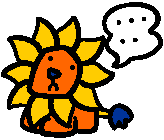
-----------------------------------------------------------------
#47 自然というものは連続した存在です:という事はそもそも線引きなど
できるものではないし、あなたが引いた線が私が引いた線よりも良い
ものだなどと言うこともできないのではないでしょうか?
-----------------------------------------------------------------
ほとんどの人が自然の多様性は連続体という考え方によってうまく説
明できるということに同意するでしょう。チャールズ・ダーウィンが生
物間の差異は種類の違いではなく程度の違いであると考えたのは正しか
ったのです。
しかしその事から、権利を認める境界線など引くことができないとい
う結論を導き出す考え方には異議をとなえざるをえません。たとえば、
他人に加える力というものは連続した存在ですが、そこには母親が愛情
を持って子供をそっとつく様な場合から強制収容所の囚人に加えられた
非道な暴力に至るまで様々な段階が存在します。前者の場合には明らか
に人権の侵害は存在しませんが後者の場合には明らかに人権が侵害され
ています。この両極端の間のどこかに道徳的非難の対象となるべき境界
線が存在しているという考え方を人々は受け入れているわけです。
それと同様に動物界においても権利を認める根拠となる資質はそれぞ
れの動物の間に異なる程度で存在するでしょうが、それでもなお権利を
認めるべき境界線はどこかにあるはずです。しかし結局のところその境
界線は実質的には社会が決めています。現在、我々の社会はその境界線
を人間のすぐ下に引いています。
こうした線引き(人間のすぐ下)は論理的に正当化しえるものではあ
りません。動物によっては現在、権利があると認められている人間より
も権利を認める根拠となる資質をより多く備えているからです(たとえ
ば普通の大人のチンパンジーは昏睡状態にある人間よりも「高等な」精
神世界を持っているにもかかわらず私たちが生体実験の対象からはずし
ているのは人間だけです)したがって線引きがどこでされるにせよ、そ
の線引きにおいてある種の動物は権利をもつ者として認められなければ
ならないはずなのです。
さらには線引きの難しさが間違った場所に線を引くことを正当化する
わけではありません。逆にこの難しさは倫理的観点から言えば線引きが
より、「慎重に」かつ「控えめに」なされるべきものである事を意味し
ます。
動物の権利に反対する人々による種差別的な線引きが道徳を名目的な
ものにしてしまう危険性からしても、ある動物はある人間よりも権利を
認められるべき資質をより多く備えているという点からしても現在の状
態は擁護できるものではありませんし、権利の概念は人間と同様に人間
以外の動物も対象とする方向に進化すべきものです。
もうひとつ忘れてはいけないのが、もし現在よりも道徳にかなう新た
な線引きがなされたとしても(そうするのは極めて簡単なことです)そ
れが権利を認められなかった動物を理由もなく殺すことを奨励するわけ
ではないという事です。それが権利を持つものであろうが、そうでなか
ろうが、全ての生き物の利益と幸福に対して正当な配慮がなされる様な
道徳的環境が形成されることを私たちは望んでいます。
AECW
連続した存在である事を理由に線引きが不可能であるとか、ある線引
きが他の線引きよりもましだと言うことなどできないとする意見が不当
なものであることは簡単に証明できます。たとえば血中のアルコール濃
度は連続した存在ですが、社会ではその濃度が0.10パーセントを超えた
場合を飲酒運転とみなすという線引きを行っています。この線引きはた
とえば0.00000001パーセントでの線引きよりは明らかに妥当なものです。
DG
参照:
#22、
#39、
#40、
#41

...............



-----------------------
#47 Nature is a continuum; doesn't that mean you cannot draw a line, and
where you draw yours is no better than where I draw mine?
-----------------------
Most people will accept that the diversity of Nature is such that one is
effectively faced with a continuum. Charles Darwin was right to state that
differences are of degree, not of kind.
One should take issue, however, with the belief that this means that a
line cannot be drawn for the purpose of granting rights. For example,
while there is a continuum in the use of force, from the gentle nudge of
the adoring mother to the hellish treatment visited upon concentration
camp prisoners, clearly, human rights are violated in one case and not the
other. People accept that the ethical buck stops somewhere between the two
extremes.
Similarly, while it is true that the qualities relevant to the
attribution of rights are found to varying extents in members of the
animal kingdom, one is entitled to draw the line somewhere. After all,
society does it as well; today, it draws the line just below humans.
Now, such a line (below humans) cannot be logically defensible, since
some creatures are excluded that possess the relevant qualities to a
greater degree than current rights-holders (for example, a normal adult
chimpanzee has a "higher" mental life than a human in a coma, yet we still
protect only the human from medical experimentation). Therefore, any line
that is drawn must allow some nonhuman animals to qualify as
rights-holders.
Moreover, the difficulty of drawing a line does not by itself justify
drawing one at the wrong place. On the contrary, this difficulty means
that from an ethical point of view, the line should be drawn a) carefully,
and b) conservatively. Because the speciesist line held by AR opponents
violates moral precepts held as critical for the viability of any ethical
system, and because some mature nonhumans possess morally relevant
characteristics comparable to some human rights-bearers, one must come to
the conclusion that the status quo fails on both counts, and that the
arrow of progress points toward a moral outlook that encompasses nonhuman
as well as human creatures.
In addition, it should be noted that when a new line is drawn that is
more in step with ethical truth (something quite easy to do), in no way
should one feel that the wanton destruction of non rights-holders is
thereby encouraged. It is desirable that a moral climate be created that
gives due consideration to the interests and welfare of all creatures,
whether they are rights-holders or not.
AECW
The idea that a continuum makes drawing a line impossible or that one
line is therefore no better than another is easily refuted. For example,
the alcohol concentration in the blood is a continuum, but society draws
a line at 0.10 percent for drunk driving, and clearly that is a better
line than one drawn at, say, 0.00000001 percent.
DG
SEE ALSO: #22, #39-#41




